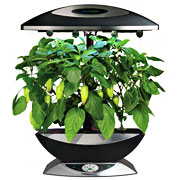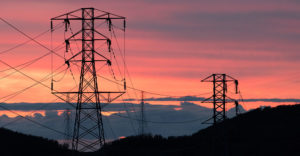
One day, gardener Robert Mainville saw a show about hydroponics on PBS, and it fascinated him. Soon he had set up a hydroponic garden in his own yard — forsaking his old soil plots — and within months was harvesting tomatoes, cabbage, kale, and turnips.

“It works fantastically,” Mainville, the owner of Cape Fear Hydrogardens in Wilmington, N.C., told TechNewsWorld. “The production you can get is amazing. All winter long I eat from my garden.”
The Benefits of Water
Mainville, who also installs hydrogardens for others, has a vertical hydroponic system designed byEzGro Garden, with room for more than 600 plants in a 20-by-40-foot area — far more plants than a traditional garden could support. The plants grow above ground in pots filled with a watery growing medium, and they’re fed regularly with fertilizer.
Hydroponics has many benefits for gardeners, including a high yield, small space requirements, few weeds, and less water usage.
“My wife calls it the Mainville produce aisle,” he said. “You can’t do that with a regular garden.”
Mainville has sold some of his produce, including ruby basil, to a local gourmet restaurant, but his garden is primarily a personal project. He has found that he can grow unusual varieties of vegetables, and their quality is actually superior to those raised in soil.
“You can grow varieties that don’t have to ship well,” said Mainville. “When you garden yourself you can pick for flavor.”
New Ways of Living and Growing
Hydroponics, for Mainville, has become a way of life, changing how he views plants, food, and the Earth.
“If more people did this, it would be much better for the whole planet,” he said. “It works great. I wouldn’t go back to gardening the other way if you paid me.”
Despite what some people think, experts say that the taste of vegetables raised hydroponically rivals and even exceeds that of vegetables raised in soil.
“Produce tastes better [when grown] hydroponically,” Larry Johnson, owner of EzGro Garden, told TechNewsWorld. “Taste comes from the vegetable having more nutrient value, vitamins, sugar. That’s much easier to achieve hydroponically.”
Tabletop Hydroponics
Even those without backyards or patios can get in on the hydroponic boom with small indoor lighted systems like the AeroGarden. Manufactured by AeroGrow, these systems come in a variety of sizes and styles and are designed to be easy to use, even for novice gardeners.
“What we wanted to do was create an all-in-one garden, so you didn’t need to know about hydroponics or gardening to make it work,” John Thompson, senior vice president of sales and marketing with AeroGrow, told TechNewsWorld. “You drop in the grow pods, add some water, and in a few days you have a garden.”
AeroGardens are a way to get started in hydroponics and to have fresh herbs and produce even in the dead of winter.
“We’re a gateway to gardening and to hydroponics,” said Thompson, who is himself growing a dwarf lemon tree in his office at AeroGardens. “Most hydroponic systems won’t look very good on your kitchen counter, but that’s really where you want your fresh lettuce.”
Something Fishy
An offshoot of hydroponics, aquaponics pairs the raising of plants and fish. In an aquaponic system, a tank holds fish, and the water — complete with nutrient-rich fish waste — feeds plants in pots above the tank.
“It’s very sustainable,” said Johnson, whose company also designs and sells aquaponics systems. “The most you’re doing is feeding the fish.”

Fish such as tilapia work especially well in aquaponics systems, since they grow quickly and reproduce well in tanks. Some aquaponics gardeners, though, raise goldfish or other colorful varieties not to eat but simply to provide food for the plants.
Because they’re becoming more user-friendly, hydroponics and aquaponics promise to become primary methods of growing food for both individual and commercial farms. Popular with everyone from backyard hobbyists to preppers, these systems are transforming what it means to raise food.
“These kinds of systems are becoming popular because you can grow a great deal of food in a small space, using less water, space and energy than traditional gardening,” Rebecca Nelson, co-founder of Nelson and Pade Aquaponics, told TechNewsWorld. “Plus, when you combine it with a controlled environment, you can grow year-round with a continuous output of safe, healthy, fresh food.”
Even those who don’t like to garden using traditional methods find these methods appealing.
“I have a brown thumb,” admitted Johnson. “I kill everything. I forget to water for weeks. Our system eliminates all that. You have no weeding, no watering. People like to grow stuff successfully, and hydroponics will make anyone a gardener.”






















































After spending some time reading your article on aerogarden, I got to say you, hello expart! I think it’ll save me serious time doing the research for one of the resources for our community as well as the website.